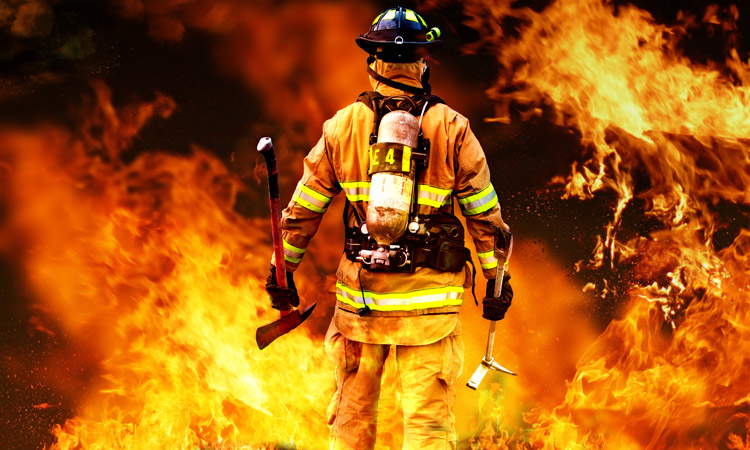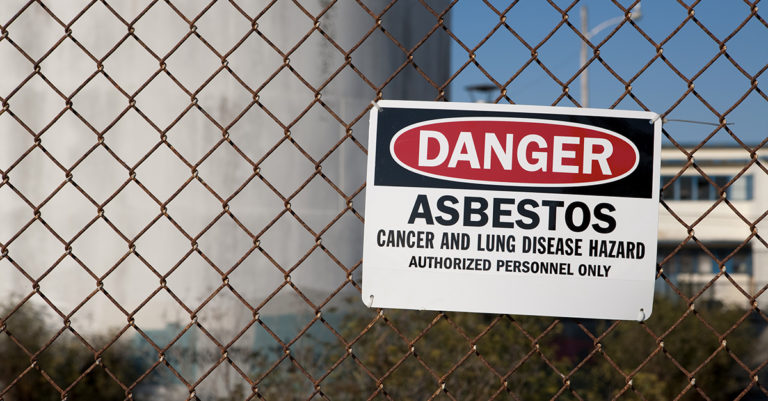

As the tragic 9/11 anniversary approaches, we come together as a nation for the 16th time to try to make sense of the worst terrorist attack on United States soil. Even close to two decades later, the aftermath still affects all aspects of American society. One aspect is particularly urgent: that more can be done to help those now dying from their brave efforts to save victims.
For the thousands of heroes who inhaled toxic dust amid the rubble of Ground Zero, help has come through the World Trade Center Health Program and the Victim Compensation Fund as part of the Zadroga Act. These resources have already dedicated billions of dollars to first responders physically and mentally scarred from the events, who have nearly exceeded the 9/11 death toll in numbers.
However, what we still need is better understanding of the catastrophic effects of these chemicals – and this help may have finally arrived in the form of the 2017 Firefighter Cancer Registry Act.
The Next Wave of Cancer Research
On any given day, just as on 9/11 and its aftermath, a single firefighter is exposed to more toxic substances and chemicals than anyone should have to inhale in a lifetime. Diesel engine exhaust, soot, chloroform, benzene and asbestos are only a few and cause an array of respiratory issues. What is underestimated, though, is the long-term effects of the more harmful substances.
Asbestos, a lethal mineral, is one such substance with devastating consequences at any level of exposure. Firefighters suffer from some of the highest rates of mesothelioma, a disease caused exclusively by asbestos exposure. In fact, according to a study by the Centers for Disease Control and Prevention (CDC), this rare and deadly cancer has crept up on firefighters at double the national rate for decades.
Even so, the CDC still doesn’t have full visibility into this problem. A lack of adequate funding brought limitations to this study and others, preventing researchers from acquiring enough data to truly understand what creates this shocking trend. This is what legislators aim to set right through a national registry.
How Would the Registry Work?
Last month, Rep. Trey Hollingsworth (R-IN) met with local firefighters in Jeffersonville to hear concerns about the unique occupational issues they face, including increased mental health and cancer risks. The Firefighter Cancer Registry Act of 2017, which Hollingsworth and other bill sponsors proposed earlier this year, would offer a solution to these issues by facilitating more exhaustive analysis of cancer-related data.
“We need to make sure that we do everything we can to support them, increase awareness about this, and do research into what we can do to prevent a spike in cancer for those who are fighting fires,” Hollingsworth said in the meeting.
The Act would provide the funding and capacity needed for the CDC to establish and maintain a specialized, voluntary registry for firefighters diagnosed with cancer. The information researchers collect – including the number and types of fire incidents attended by registrants, for example – would be synthesized with existing state-collected data to gain a more complete picture of these incidents. When published, this research would be available to the public.
Making Up for Lost Lives
Many decades ago, before the dangers of asbestos were widely known to the public, firefighters took few precautions to protect themselves from occupational hazards. They simply weren’t warned. This much has changed, at least, and fire departments across the country have taken steps to reduce risks. But for thousands of service members, the damage is already done. All we can do now is work harder to improve their health outcomes.
If passed, the Registry Act could make a profound difference to the brave men and women who risk their lives on a daily basis to keep our communities safe. Until recently, the extent of these risks was fatally misunderstood. The CDC’s inability to collect epidemiological evidence, combined with lax safety regulation, has allowed mesothelioma to plague firefighters for far too long.
“I hope this will be the beginning of a dialogue … about how we can continue to support, at every single level and every single way, those who put themselves in harm’s way for the benefit of the rest of us,” Hollingsworth added.
The CDC’s task now, then, would be to encourage as many firefighters as possible to participate in registry surveys. The more insight we gather on how substance-related cancers like mesothelioma develop, the better our chances of shrinking their nationwide impact.
The bill recently passed the House Energy and Commerce Committee and is now making its way through the House of Representatives.




